March is Women’s History Month, which is the perfect time for a showcase designed to give women in the gaming industry their spotlight and flowers. That’s the purpose of Dames 4 Games, a showcase that runs several times a year to provide a look at upcoming titles, women doing great work in gaming, and interviews with industry luminaries.
Ahead of the March 5 showcase, Dames 4 Games founder Destinee Cleveland spoke with Game Rant about where the idea for the showcase came from and the world she hopes it helps create.
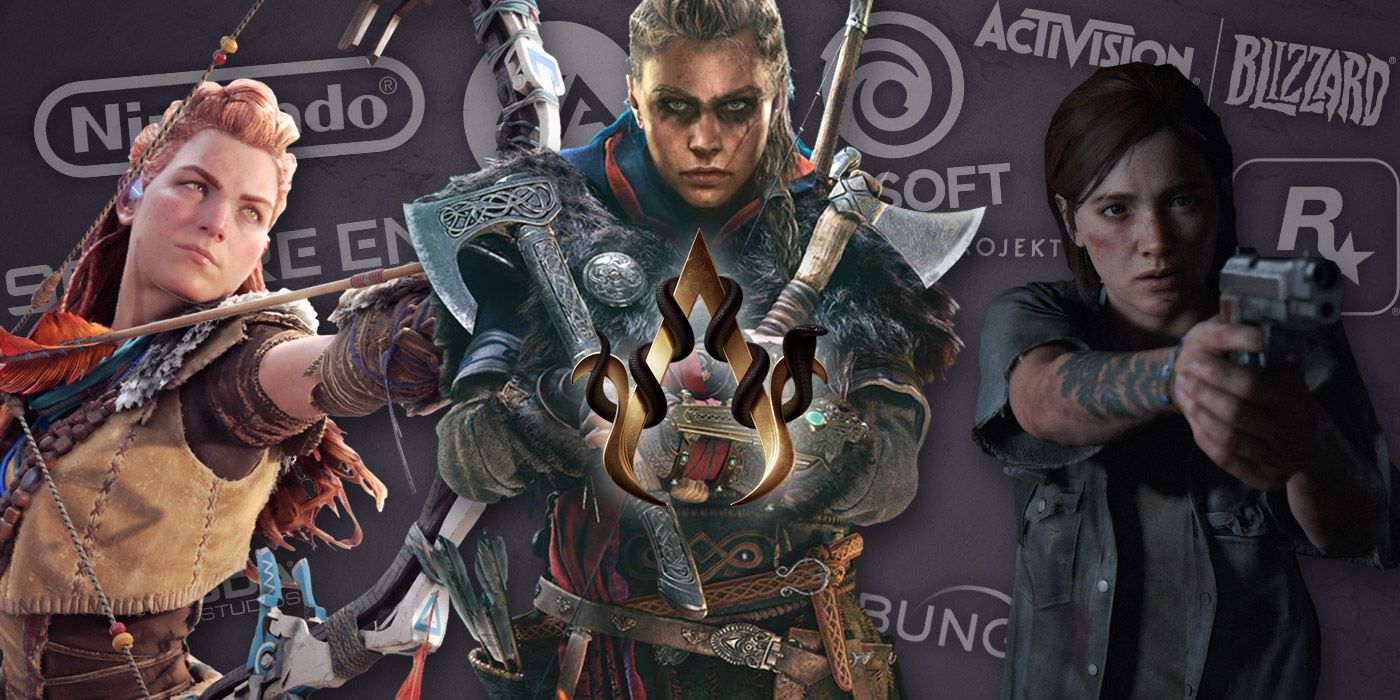
Related
Assassin’s Creed Sisterhood Founder Talks Better Representation for Women in Gaming
In an interview with Game Rant, AC Sisterhood founder Kulpreet Virdi talks about representation and inclusion of women in the gaming industry.
What Dames 4 Games Is
Q: Can you introduce yourself?
A: My name is Destinee Cleveland. I do a lot of things within the game industry. I’ve been in the game industry off and on for the past 15 years, everything from working on the development side to publishing, and I am the founder, creator, and creative director of Dames 4 Games, which is a showcase that’s focused on women and femme-identifying individuals who love playing and creating video games.
Q: Can you dive in a little more on what Dames 4 Games does?
A: The reason why I created Dames 4 Games is because, growing up just as a Black woman, I didn’t see myself in a lot of things, but I enjoyed a lot of the things that everybody enjoyed. I enjoyed watching cartoons. I enjoyed playing video games, but I found myself always being pulled towards things that I felt were, quote, unquote, “more feminine.” If I were playing something with my little brother, let’s say, I would purposely pick a pink car or a purple car, something like that. If we were playing—I don’t know if you remember this game, this is going to date me—this micro mini car game where it was on, maybe Super NES? You were these micro minis and the racetracks were like a floor of messy toys or a pool table.
I loved that game. I loved playing with my brother, but it wasn’t really pushed towards girls the same way it was pushed towards boys. I would always pick colors that I thought were more feminine, which sounds really weird. I didn’t realize I would do that until much, much later when I was thinking about that representation, and not having that and trying to find a space for me to fit into. One of the most incredible things is that I believe about 46 to 48% of game players are women, yet we still make up less than 30% of industry professionals. The reason why I wanted to do this is because I’ve always felt strongly about inclusion and diversity and representation, and I wanted to create a space where women and they/them identifying individuals could share their stories, get their flowers for their contributions, and kind of just let other girls know that, like, “Hey, we’re in this business. There’s room for us. We’re creating and contributing and doing incredible things.”
For example, I just had the senior character designer at Naughty Dog on talking about how she always dreamed about working for a game company, and now she’s at one of the top-performing companies out there, like producing great games like Intergalactic that’s coming out, that was announced last year, and The Last of Us. This is the reason why I did it: I just wanted a space where women could be seen doing these incredible things and not be hidden. I think one of the most important things to me is that the industry should just be more welcoming.
When we were young, it didn’t feel like there was a thing that was a gamer if that makes sense. If you liked games, you liked games, and if you didn’t have a system, then your friend had the system. You’d go over to your friend’s house and play, and it was just fun. And at some point, it turned into this toxic mess where people tried to gatekeep gaming, or they tried to say if you liked a certain type of game, you weren’t a real gamer.
Now, a lot of that is changing, and you are seeing a lot more women in these roles, making these decisions. I think that’s important, because I mean, a great game doesn’t just come from one set of people, right? We delve into different cultures, we delve into different ideologies when it comes to games, so it only makes sense that we should have a balance of people in the industry. It’s not just about women being in the industry and men being in the industry. Regardless of what your gender is, you bring something special to it. I think that’s really important to showcase that for the younger generation who might want to step in next, so that’s really why I created Dames 4 Games.
Q: How does Dames 4 Games provide what you were looking for?
A: Oh, my goodness. I think if little Destinee were able to see what big Destinee was doing, she would be like “No way!” I think it satisfies a part of me that always wanted to be seen and heard and, most importantly, respected. I’ve been in the industry a while now, and sometimes I felt like I’ve had to silence my voice because I’ve read the room and been like, “Okay, yeah, they’re not going to take this well,” even though I felt like I should be able to speak up just like anyone else. I should be able to express my thoughts and my feelings. The reason why Dames for Games is so important to me, and I feel it kind of fills that void, is we let people come on and express those thoughts and those feelings.
We give them two minutes to do whatever they want to do–talk about their journey, talk about their history, talk about why they love games, or talk about how they’re creating this new game and it’s their dream job. We give them that space to be seen and to be heard, and I think that’s what’s really important. I think a lot of marginalized groups would agree with me when they say that the issue with being a marginalized group is feeling that you’re never really heard, seen, or respected for how you feel. That’s what I want people to feel when they come on our showcase. I want them to feel respected when they come on. I want them to feel seen, and I want to give them a platform where people can hear about the incredible things that they’re doing in the industry.
You kind of make it sound like marginalized game developer TED talks.
A: I guess it could be like little teeny TED talks, yeah. I wish we could give them more time to go in, in more depth, but that’s a perfect way to sum that up. They’re like little mini TED Talks, and I think that’s really important. I think the great thing about TED Talks is that there are so many that are out there. You don’t know who you’re going to connect with, and I love that we’re able to give bite-sized segments of where you can connect with. You may not connect with the first person or the first developer, but the second developer, oh, my God, that’s your jam. You love horror games. You love goth, this developer is all about it, and you can see yourself being represented in that space that you already love. That’s a great analogy, yeah.
Q: You have a showcase coming up in March, right?
A: Yes, March 5 at 12 pm Pacific Standard Time.
Q: Can you tease anything about it?
A: I did kind of tease a little bit about it earlier. When I said that I talked to the senior character artist at Naughty Dog, she is going to be our special guest. Her name is Colleen Larson, and you guys will definitely want to tune in and listen to her story of how she started out, what inspired her, and how she has her dream job now working with an incredible team and creating dope characters. I mean, she’s extremely talented. If any of you are looking to be a character designer, or you’re into art, or you’re into creating, she’s amazing. She also does talks, and she also helps volunteers, like helping other students who are trying to get into the industry. She’s a very down-to-earth, very, very cool person.
Then, we will be showcasing about 10 to 15 different developers who will have their own segments. This year, we made sure to have a really good mix of the games we have. We have some cozy games, we have some hard-hitting games, we have some novel games, very narrative driven. We also put a segment together of really cool, exclusive trailers, so if you are into gaming, you don’t have to be a woman, you don’t have to be femme-identifying. You can be an ally and just sit back, relax, and check out the video games. It really is just about these creators and what they’re doing and what they’re putting out into the world.
Q: And where can people watch this?
A: We will be on IGN, we will also be on Gamespot, on YouTube. We’ll also be on Twitch! We are also partnering with WINGS Interactive and Women-led Games who will also have a showcase. WINGS will be kicking off their showcase on March 3, and Women-led Games will be kicking off their showcase on the 6th–all of those showcases will be on IGN. If you want to know specific times or any details about that, feel free to follow them on their socials, where they are active and posting announcements to keep their community abreast of everything that is going on.
Q: What are some highlights of past events you’ve hosted?
A: Oh, my God, we had on Sam Béart. They’re the actor of Karlach, and they are one of the most incredible people I’ve ever met. Cool little story, I met them at DICE last year, and I hate that I fangirl. I want to keep it so cool, I want to be so chill, but I can’t. And they’re just the tiniest little thing. I never look up actors to characters I play because I’m like, “Oh, that’s just going to break it for me, like it’s going to take me out of the game.” I had no idea what they looked like, they came up and a friend introduced them, and I had to do a double take because I was like, “Wait, what do you mean? Like Karlach? Like, my Karlach?”
Then Sam spoke, and I was like, “Oh my God.” I freaked out. I freaked out! And I was like, “I’m so sorry. Like, I don’t know where that came from.” Sam was just like, “No, that’s the reaction you should have. I love that.” Sam’s amazing, so just from that meeting, I was like, “I would love to interview you and just have you on the showcase because you really were my breakout favorite character of that game.” They were like, “Here, let me get your phone number.” I chat with them off and on, just checking in and stuff like that, but like, honestly, the sweetest person, very down to earth. And I just feel so grateful that they took time out of their busy schedule to come on, talk with us, and share their story.
The State of Women in the Games Industry
Q: What’s the industry like right now for women?
A: I think there are two different industries. I know this is going to sound very weird, but there’s the indie sector and then there’s the AAA sector. I think the indie sector when it comes to developers and just working together with women is much more progressive than triple A has been. I think AAA is working towards being more progressive, but I think the indie scene is where it’s at.
There are so many incredible women and they/them identifying individuals uplifting each other, but not only us in that group. We have a lot of male allies that are uplifting us as well, and that’s incredible because we need that allyship. What I’ve noticed just from going to these events and talking to different people, there are groups of people who understand that things need to change, and I do think they’re changing because I think that people are speaking up a lot more. It’s not just us that are speaking up, it’s also our allies who are speaking up, it’s making our voice louder, and that’s what’s really important. It is a lot. I won’t say it’s a lot better, but it is better than it was five years ago, even if we still have room for growth. I will just say that, as a society, we still have room for growth.
Q: We talked a little about how the industry has changed for women involved in the industry, how has its attitudes evolved toward women gamers?
A: I think the easiest answer to that is that there are going to be some people who are just toxic for toxic’s sake, and they’re going to have to want to change. I think that I can speak for myself personally. I don’t like to make blanket statements, so I won’t say like women or femme-identifying individuals in general, but I am tired of trying to prove to those people that we belong, right? I would rather have conversations with people who want to learn and who are open to learning–not to argue with me, but to really think about how they’re approaching society, women in general, gender norms, all of these things. I think the things that are happening within the industry and outside of the industry, surrounding gaming, are not isolated. It’s a very toxic part of our society and our culture, and it feeds into one another.
Do I ever think it’ll ever completely go away? No. But do I think that we have a better chance in gaming just because of how many people game, how different gaming can be, and all of these stories that are coming out of it. I do think that gamers have a better chance at coming together and just accepting one another versus the outside world because, at the end of the day, we all love gaming. That’s what we have in common. There really shouldn’t be a “you’re not a gamer because of this,” “girls can’t play games,” “I’m going to objectify a woman,” “I’m going to harass someone for their gender or their sexual preference,” or it doesn’t matter, because now games, they’re taking everything and they’re creating these stories around these characters that aren’t even real, that people are able to connect with. I think that’s what’s really important.
The more that you see developers creating their own games, especially in the indie space, the more connections that people will have with it, and that’s okay. It’s okay to have the games that you like and the games that you don’t like, but you don’t have to be hateful towards each other. I think, in a way, that’s what some of these games are trying to say, like, ‘it’s alright to be different, but at the end of the day, we’re all gamers. Why are we fighting?’
Q: What do you think and feel when a game is announced, and it has a woman protagonist and the backlash comes? What is that moment for you?
A: I think, as a Black woman growing up in the South, I am used to it. I’m used to the backlash of certain things, it’s not even surprising anymore, and that’s the disappointing part. For example, when they announced Intergalactic, they showed the main character, and there was this backlash. It’s almost like we knew it was coming, and it makes me just want to fight more. To have that kind of thing be the norm versus it being the exception. I think that’s part of the problem is that we’re still at the very beginning of where AAA studios are exploring and expanding into having other main protagonists other than what they’ve had in the past, historically, and people have an issue with that. I think the reason why people have an issue with it is because it’s just not been done enough to the point where it’s the norm. Honestly, it just makes me want to fight harder.
Personally, for Intergalactic, I was super excited. I get excited anytime I see a Black female character however she’s represented in a game because you just don’t see it that often so I already kind of expect the backlash just because I know that there are people out there who won’t like it. But it also makes me happy to see that it’s still happening regardless, like you can’t stop progress, and that’s the beautiful thing.
For instance, Forspoken certainly had some issues, but it was largely overlooked because of its protagonist, I think.
A: I didn’t play the game myself, but I watched it and I really liked it. I liked the graphics of it. There were some people who complained.
I think that if you’re going to write stories about characters that you’re not a part of that culture, you need to have a lot of writers who are a part of that culture in that room. I know that some of the backlash that I heard from the Black community about her is that they were upset that it was this type of relation, this type of family dynamic where her dad was gone, and it seemed like her dad was just not there and he didn’t care. That’s kind of like one of those stereotypical things that you see come out of these stories about Black families. I will say, a game that did it really well was Spider Man: Miles Morales where both parents were there and very loving. And even though he got into a little bit of trouble and things like that, he still had a whole family unit, right? And I think that’s what was missing from that game.
People didn’t like that aspect of it, but I didn’t have an issue with it, just because, like, it is a part of life. There are broken families everywhere, but I think for people of color, they’re like, “Yeah, but when we see a character that looks like us and that we identify with, we would like it to be more positive, just because there’s so much that comes from exploiting the Black narrative and the negative Black narrative.” I do understand that, but I agree with you. I thought it was a beautiful game. Not everybody liked it. But also, I think one of the reasons why it did not get the amount of play and the flowers that it should have gotten was because the main character was very obviously a person of color.
There’s that, but you also have South of Midnight. I am very curious to see how they do that story because it looks beautiful, but I am very curious. Another reason why I’m curious is because I haven’t done any research on the game, so I don’t know how much research they did, if they collaborated with people in the south, and things like that, which is why the whole thing about representation is really important. If you’re going to represent a culture, make sure you’re doing it the right way.
There’s also the idea that you have women in these games, but sometimes they’re really oversexualized. We don’t always want to be oversexualised. Some of us do. Some of us don’t. Being able to find these characters that have more depth, who are women, who are leading these games, that’s really incredible, which is why I’m excited about South of Midnight. I’m excited about Intergalactic. I was really excited about the reboot of Tomb Raider when they rebooted her, and she wasn’t just huge polygon boobs. Sorry, they were just massive. I love Tomb Raider, but they were massive.
I love that we’re stepping away from “a female character has to look a certain way, she has to be super sexy, she has to be blah blah blah, or she’s not relevant.” I love that we’re diving into different cultures, and I hope that we dive into more worlds. It’s not just me talking about Black culture and white culture, but like Native American culture, Asian culture. I just want to see more representation across the board.
Q: You mentioned that some amazing people are working in the industry right now, and you mentioned wanting to give people their flowers. Off the top of your head, is there anyone that you would like to spotlight in the industry?
A: Off the top of my head, I would definitely like to spotlight—I don’t know if they’re even going to know that I mentioned them. I’m going to mention a couple of people who I thought were really great allies. Brian Herren was my director at the publisher that I worked for, and when I came to him with the idea about Dames 4 Games, which had been something that I had wanted to do for a long time, he helped with our first sponsorship to get it off the ground, which was incredible. At that time, I didn’t know where we were going to get the money from to make it happen because, to put a digital showcase together, it’s quite expensive, especially when you have to get the editing team in, the producer, the motion graphics done.
So much love to Brian, much love to Joel and Justin from MIX. They have been super supportive. The MIX has helped with so many connections, with helping us to get to IGN because they’ve already built those partnerships and are really well respected within the industry. I don’t think we would have even been able to get as far as we had without them. Actually, I know we wouldn’t. I have so much love for them. And then to my D4G team, honestly, it’s made up of lots of different people. It’s not just women, and all of them have been incredibly supportive. I could not do half the things that I do without them. They have been my champion and my rock. I know that sounds so sappy, but it really is true.
Honestly, there were so many people. Mr. Midas, he works at PCGamer now, just an incredible human being, always super positive and always believed in me, no matter what I was talking about. He was like, “you can do it,” and that’s been great. Gerard, HipHopGamer, an incredible human being, is doing some amazing things. So proud of him. Has always been super supportive.
Honestly, the list could go on, just so many people who have been in my corner when I’ve just been exhausted and very tired, because Dames 4 Games is a passion project. It’s not something I get paid for, and I’m okay with that because it’s something that I really believe in and I think needs to be done. I get fulfillment from people being like, “Oh my god, this is our first showcase that we’ve ever been in. Oh my god. Thank you for the opportunity.” We don’t charge developers to be a part of the showcase. We carry the full brunt of everything. We just want to get their stories out there. I also want to thank Kickstarter. They were one of the first organizations that helped us with sponsorship. WINGS helped us with a sponsorship. There have just been so many people who have stood up for us and believed in what we were doing, and hopefully we can find more people to kind of champion us as we continue to grow.
Q: What are your hopes for the future of games?
A: I hope that we come to a point where we don’t need a Dames 4 Games. I know that sounds weird, but I hope we get to a point where the workforce is almost 50/50, that it’s not an exception, that we don’t need to have showcases to represent women because women are represented regardless. That’s what I hope. I mean, I love doing Dames 4 Games and I love sharing these stories, but at the same time, I’m doing it because no one else was doing it. Maybe if I do it—a bunch of other shows have popped up since we started Dames 4 Games—it will become the norm, and then we won’t need to have shows like this anymore, because it’s just common knowledge that women are creating great stuff in the game industry. That’s my hope.
[END]
The next Dames 4 Games Showcase takes place on March 5 at 12 pm PT/3 pm ET.





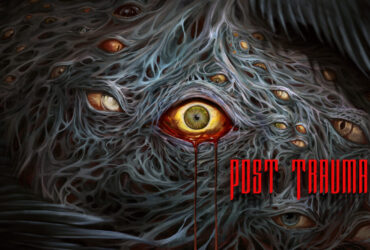
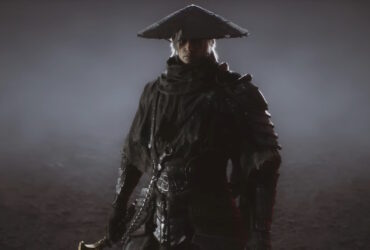
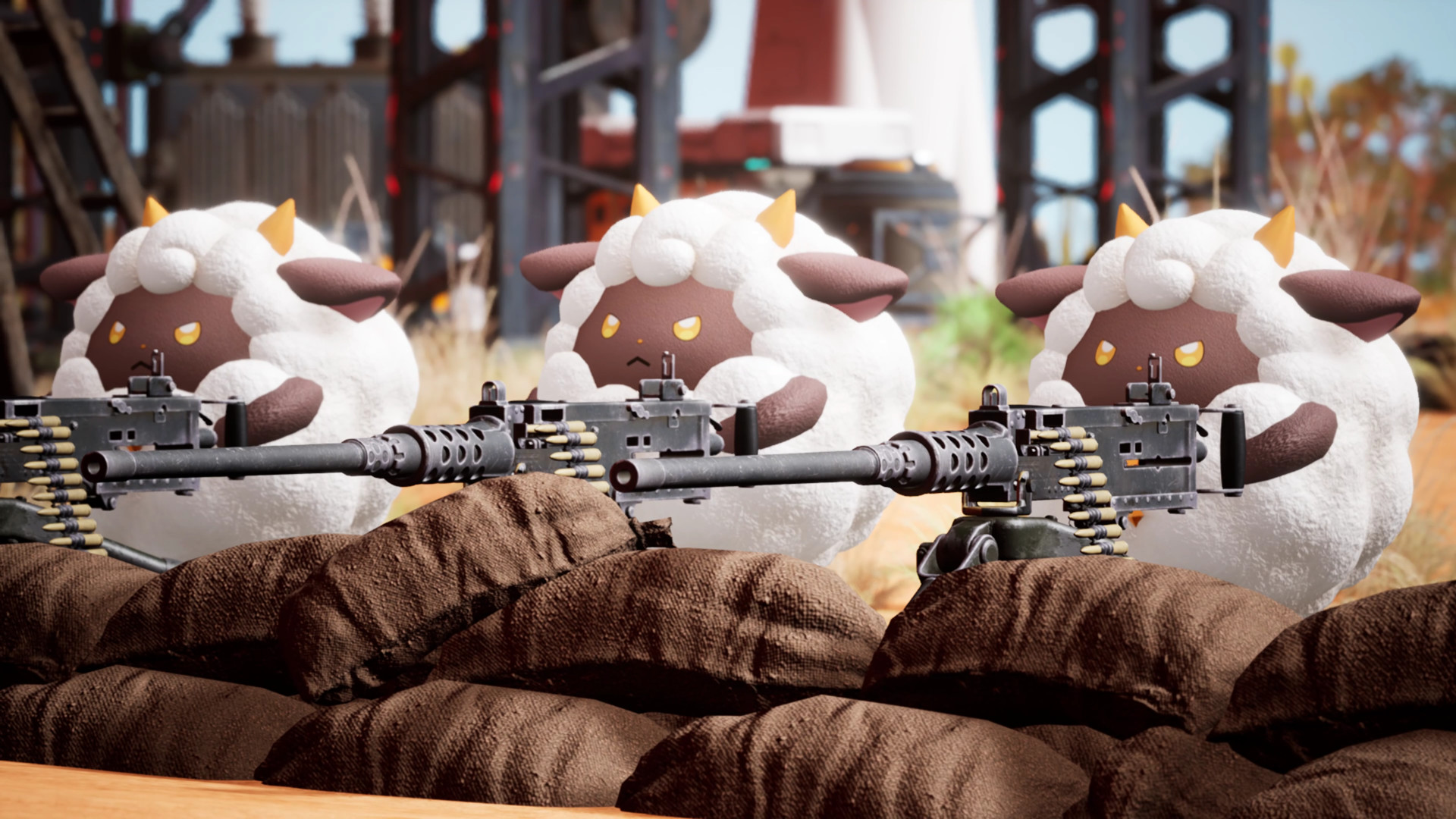
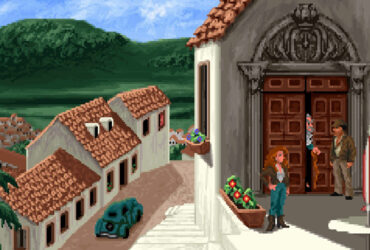
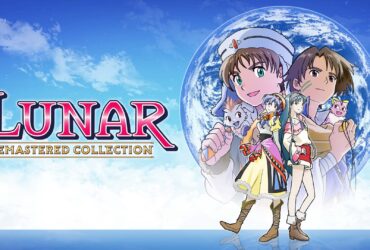

Leave a Reply